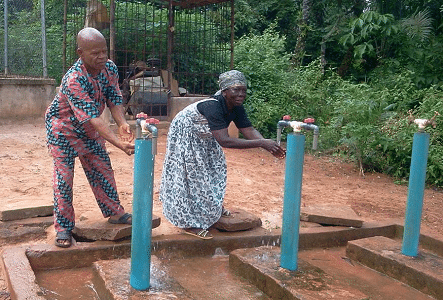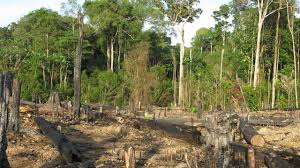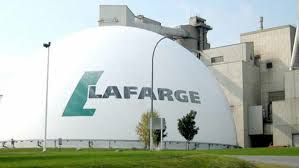Relief as WASH interventions end water shortage in Anambra community

Nkechi Onyemaechi, an indigene of Ononaku Isioji Ezinifite Community in Aguata Local Government Area of Anambra State, grew up fearing that water scarcity in her community would have no end. As a young girl and first child in a family of five, she was assigned with the responsibility of fetching water for the family.
For the 13-year-old teenager, fetching water was not a problem to her but the distance and hours involved in fetching the quantity of water that would be enough for the family each day.
This arduous task consistently prevented her from going to school early and regularly.It also did not allow her participate in outdoor activities with her friends.
Each morning she was preparing for school, she would hear screams of “ there is no water in this house , go and fetch me water before you go to school ” from her mother. Then she would cry in her heart wondering when the problem of water scarcity would be over in her community.
Onyemaechi who is in SS1 was overly busy with fetching water. She said she began fetching water from a river far from her village at the age of seven.
“Because we had no water supply in my village, I was excessively engaged in fetching water for the family which negatively affected me because I was always busy.
This routine created great fear and anxiety in me all the time until, the United Nations Children’s Fund (UNICEF) came to my rescue through its Water, Sanitation and Hygiene (WASH) interventions with support from European Union (EU) “, Onyemaechi told our correspondent during a recent visit to the community.
Onyemaechi who could not hide her joy continued, “But today, with support from UNICEF, life is now worth living for me. UNICEF has ended water shortage in our community.
I now have rest and can concentrate well on my studies. Infact,since the interventions were brought to our community, I have been doing well in my studies. I want to become a pharmacist. All thanks to UNICEF and EU.”
Ononaku Isioji Ezinifite community is among those communities benefitting from UNICEF-assisted WASH programme which has taken off in five of the 24 local government areas of Anambra State.
Another indigene of the community, a sixty-year-old grandmother, Mrs.Theresa Ike, told our correspondent that the WASH projects have made life pleasant for every one in the area.
Sharing her experience with The Daily Times, Ike said,”Before the interventions, access to safe water was a big problem to us. We used to go to the neigbouring community to fetch water from their river for washing, cooking and drinking.
We also used to store rain water in our underground tanks which only lasted during the rainy season. We were having health issues drinking water from those sources beacuse we had no choice then.
So, you can imagine how relieved we are now with these interventions. Our nursing mothers and their babies in particular, were greatly affected at that time.
Most times, they bath once a day. And their babies were always down with diarrhea related illnesses after drinking from the tank water or river. So,we thank UNICEF for coming to our aid.”
Also, a mother of seven who simply identified herself as Mama Chinelo, said the water supply had reduced the pain of her children looking for water morning and night.
She noted that the interventions have brought an end to the constant quarrel among her children over whose turn it was to go to the river to fetch water for the family.
“And they no longer go to school late like before,” she said gratefully.
The WASH programme of UNICEF with support from EU is being carried out in some selected communities in Anambra state to end many years of water scarcity and its attendant consequences in those communities.
According UNICEF Chief of WASH Programme in Nigeria, Mr. Zaid Jurji, $1 investment in water, sanitation and hygiene could yield an average return of more than $25 in good health, productivity, learning, among others, adding that with political will and determination, Nigeria could achieve it because of its cost effective nature.
Besides Anambra, UNICEF is also empowering rural communities in five other states in Nigeria, namely; Yobe, Kano, Jigawa, Osun and Cross River through its WASH interventions.
The WASH interventions basically seek to achieve great success in water supply, hygiene and sanitation, thereby,reducing the incidence of water borne diseases such as diarrhea in those selected states.
The excitement in Anambra state based on findings by our correspondent, show that the WASH interventions have improved the health conditions of rural communities in the state.
The World Health Organisation (WHO), recently warned that two billion people are drinking water contaminated with faeces, and 3.4 million people die annually as a result of water borne diseases, associated with inadequate provision of drinking water and sanitation.
Regretably, the 2016/2017 MICS report shows that Nigeria constitutes a significant percentage of this two billion people, as an overwhelming majority of 163 million households drink water contaminated by faeces and E.Coli.
According to data from UNICEF, over 57 million Nigerians still fetch and drink water from rivers, lakes, ponds, streams and irrigation canals.
Another UNICEF report also shows that about 130,000 Nigerian children die annually as a result of water-related infections.
Experts are worried that the government spent three times as much on fighting malaria than they did on improving contaminated water sources and poor sanitation, which kills twice as many children by causing diarrhea and other illnesses.
UNICEF has warned Nigeria that neglecting investment in WASH could undermine its efforts in meeting its Sustainable Development Goals (SDGs) by 2030, stressing that each of the 17 SDGs has WASH sector embedded in it particularly SDGs goal 6 with specific target on WASH.
SDGs Goal 6 aims at ensuring availability and sustainable management of water and sanitation for all.
Also, based on World Bank estimates, Nigeria needs to invest at least three times more than what it does currently to achieve WASH SDG Goals by 2030.
Stressing the need for increased access to improved water, sanitation and hygiene in the counry, UNICEF WASH Specialist, Abuja, Mainga Moono Banda, told our correspondent that WASH is critical in health, nutrition and education.
Banda affirmed that investment in WASH interventions brings about a positive impact on health, attendance of children in schools, work and economic productivity of individuals.
Noting that WASH could affect school attendance due to diarrheal illness.
Quoting WHO’s 2004 statistics, she said that it has been estimated that 194 million school days would be gained due to less diarrheal disease if targets for sanitations were met.
Banda went on to say that access to safe water can save most of the under five children who die annually from preventable diseases, as most of the diseases are caused by poor access to water.
On what the Anambra state government is doing to complement UNICEF’s effort in the state, Programme Manager, Rural Water Supply and Sanitation Agency ( RUWASSA), Victor Ezekwo, said the state government had rehabilitated 116 non functional boreholes across the state.










